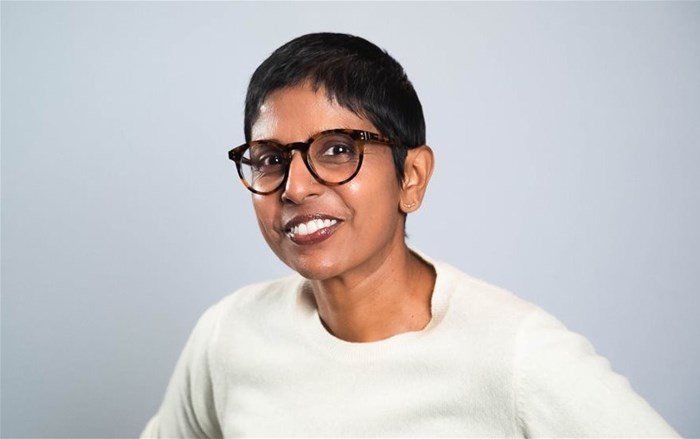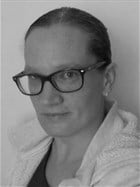
Subscribe & Follow
#AfricaMonth
In the news

#WomensMonth: Overcome challenges by focusing on your response - Jo-Ann David, Mondelez International

Background
The offspring of two teachers, David and her brother, Michael, grew up in Verulam, north of Durban; later moving to Glencoe, a small town between Ladysmith and Newcastle in KZN, where they attended primary and high school.
"I went to the University at Natal, Pietermaritzburg, for both my undergrad and most especially my postgrad, as my mum had read that it was considered the academic seat of law in the country at the time. I suspect that her motivation was twofold, she also wanted me closer to home!" says David.
Armed with a Master's in Commercial Law from the University of Natal (now part of UKZN), David's career spans 25-years and three continents - having worked in both Beijing and Houston before returning to South Africa. During this time, she has earned extensive legal experience in commercial and corporate law.
"I served my articles and spent some time in private practice before I decided to answer what looked like a dream job advert in the Sunday Times Careers supplement (does that still exist?). That began my career as in-house legal counsel and here I am now at Mondelez, having joined in the middle of the pandemic almost three years ago," David explains.
Now married, the avid reader and runner describes herself as "proudly South African, evidenced by having returned as an expat twice."
This Women's Month, David reminds us to have faith in our abilities and that while we don't have to be perfect, be brave.
Why did you pursue a career in law?
A couple of reasons. My uncle, Paul, an anti-apartheid activist, made it seem like a worthy and virtuous occupation. It also so happened that my acceptance into law school came through well before my scholarship to do History honours and so practicality and expediency won the day.
What are the challenges that women in the legal industry deal with today?
Of course, women face challenges in the industry, be it pay parity, sexual harassment or discrimination when we decide to have children. But I’d rather approach this question from a solution-orientated frame - how do women respond to the challenges in the industry?
I believe strongly in our agency as women, that we can influence our thoughts and behaviour and that having faith in our ability to navigate challenging circumstances and to succeed, best serves us in getting over difficult obstacles.
In my experience, working on cultivating a strong sense of self-awareness so that we’re not easily triggered by a male colleague who is talking over us or worse still ‘mansplaining’ is strategically smart. As is building our confidence and our competence so that we can resiliently deal with the imposter syndrome that raises its ugly head now and then. And importantly too, we need to further our fellow women in the industry by looking out for women and supporting them in meaningful ways. Like connecting one another by facilitating an introduction, for example, or taking strategic bets on women who show promise and potential.
What do you think is the most important piece of legislation affecting women that has been passed - either locally or internationally - within the last 30 years?
South Africa’s Choice in Termination of Pregnancy Act of 1996, gives all women the right to a free termination at a government hospital or clinic during the first 12 weeks of pregnancy. Access to safe and legal abortions is not just an issue of women’s bodily autonomy but also one of economic freedom. There are many studies which show that young teenage mothers are less likely to complete high school, which then adversely impacts their ability to set themselves up for success, financially speaking. And we know that when more women are educated and more women work, economies grow.
Over the course of your career, how have you seen the gender divide change within the industry?
I think that some of the stereotypes about women in law have shifted for the better. For example, I started my articles and some of my time in private practice doing litigation, both civil and criminal. There weren’t many women doing litigation for all the stereotypical reasons that you can imagine. The women were expected to be conveyancers, doing property law or drafting contracts, based in the office working on the paper. I exaggerate and generalise for effect here. Today though for example, I have a litigation matter headed by strong and effective women with a team of equally strong and effective women.
Who are you female legal icons and why?
Chimamanda Ngozi Adichie is not in the legal profession but her writing and her talks are so relevant to women wherever they find themselves, that I consider her a strong female and feminist icon. If you haven’t read or listened to We Should All Be Feminists or Dear Ijeawele, it eloquently reminds us that we women matter equally, and that we are not just objects to be liked or disliked but we are subjects who can like or dislike. I find her incredibly empowering and she’s my go-to tonic whenever I need to lift my spirits.
What is your message to young women this Women’s Month?
I like to refer to Reshma Saujani’s words, "be brave, not perfect" as another of my favourite authors: "Tap into your innate sense of courage and speak up when you have something to say. Don’t let thinking that you have not got the right words hold you back. Rather say it, even if you’re not expressing yourself as articulately as you’d like. My lightbulb moment has been that you can say something less than brilliant and nothing terrible is going to happen. The world is not going to come to an end."
So, be brave, ask that question, raise your hand for that job and take your seat at the table.
Related
Ogilvy celebrates multiple wins at Mondelēz International Awards 24 Apr 2025 Goo Goo Dolls live in SA: The re-education of a girl turned Goo 31 Mar 2025 Unpacking progressive parental leave policies with Plentify's Tamsyn Lunt 28 Mar 2025 #TopEmployers2025: Gcobisa Ntshona - how African Bank is empowering employees with its ‘Audacious People Promise’ 13 Mar 2025 South African philanthropists unite for climate action with new pledge 28 Feb 2025 Public release of the NRSO: Educators to get first look 27 Feb 2025













